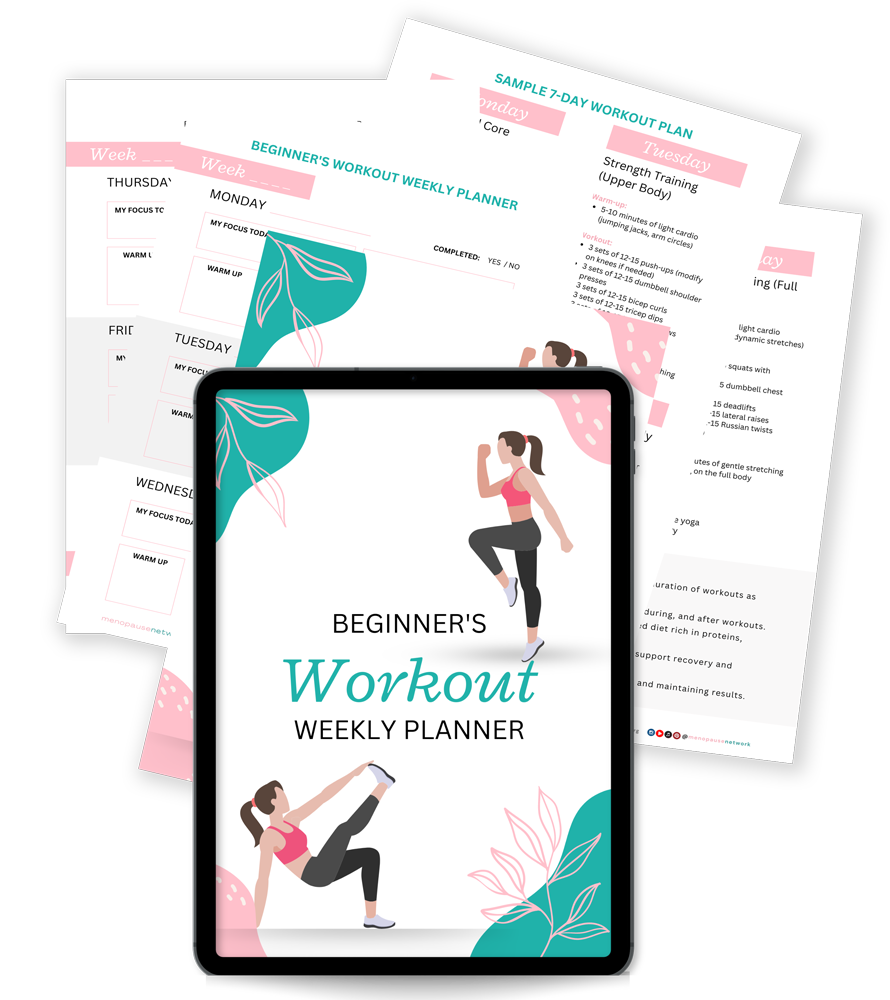The Best Workouts to Boost Energy and Mood in Your 40s and Beyond

Feeling a bit sluggish or down lately? If you’re over 35, especially in your 40s, this is for you!
Exercise can be a total game-changer, boosting your energy and mood. But not all workouts are the same. As we age, our bodies undergo various changes. Muscle mass decreases, metabolism slows, and the risk of chronic conditions rises. Regular exercise can counteract these effects, keeping you strong, energized, and mentally sharp. According to Dr. Mary Jane Minkin, a clinical professor of obstetrics, gynecology, and reproductive sciences at Yale University, “Exercise is crucial for maintaining overall health, especially as women age. It boosts endorphins, which can improve mood and energy levels.”
Let’s explore the best exercises for women in their 40s and beyond, with tips from experts and inspiring success stories.
Effective Workouts for Energy and Mood Enhancement
Cardio Workouts: Get Your Heart Pumping.
Cardio exercises like brisk walking, jogging, cycling, and dancing are fantastic for elevating your heart rate and releasing those feel-good endorphins. Aim for at least 150 minutes of moderate-intensity cardio each week. Jane, a 42-year-old mother of two, shares, “I started walking every morning for 30 minutes, and it has transformed my day. I feel more energetic and less stressed.”
Strength Training: Build Muscle, Boost Confidence.
Incorporating strength training into your routine helps maintain muscle mass, which is vital for metabolism and overall strength. Lifting weights, using resistance bands, or bodyweight exercises like push-ups and squats are excellent choices. Fitness expert Samantha Clayton recommends, “Strength training twice a week can make a huge difference in your energy levels and body composition.”
Yoga and Pilates: Flexibility and Mindfulness.
Yoga and Pilates are perfect for improving flexibility, balance, and mental well-being. These practices promote relaxation and can significantly reduce stress levels. Lisa, 45, found solace in yoga after a stressful year, “Yoga not only improved my flexibility but also helped me manage anxiety better.”
High-Intensity Interval Training (HIIT): Quick and Effective.
HIIT workouts involve short bursts of intense exercise followed by rest or low-intensity periods. They are time-efficient and can boost your metabolism for hours after exercising. Dr. Amanda Richardson, a fitness coach, notes, “HIIT is great for busy women who need a quick yet effective workout. It’s a fantastic way to increase energy and burn calories.”
Expert Tips for Staying Motivated
Set Realistic Goals
When starting out, it’s essential to set achievable and realistic goals. Begin with small, manageable targets and gradually increase the intensity and duration of your workouts. For instance, start with a 10-minute walk each day and slowly build up to 30 minutes. Setting attainable goals helps you track progress and stay motivated without feeling overwhelmed.
Find a Workout Buddy
Exercising with a friend can be a great motivator. A workout buddy can help keep you accountable, making it less likely for you to skip workouts. Plus, having someone to chat with can make exercising more fun and enjoyable. Whether it’s a friend, family member, or joining a fitness class, having a companion can boost your motivation.
Mix It Up
Variety is key to keeping your workouts interesting and challenging. Incorporate different types of exercises to prevent boredom and to keep your body guessing. This can include a mix of cardio, strength training, yoga, and even fun activities like dancing or hiking. Changing up your routine not only keeps things fresh but also helps work different muscle groups, leading to better overall fitness.
Listen to Your Body
It’s crucial to pay attention to how your body feels during and after workouts. Rest is just as important as exercise to prevent injuries and allow your body to recover. Don’t push yourself too hard; if you’re feeling pain or extreme fatigue, take a break. Overtraining can lead to burnout and injuries, derailing your fitness journey. Remember, consistency is more important than intensity.
Staying motivated can be challenging, but with these expert tips, you can maintain a healthy and active lifestyle that fits your needs and keeps you feeling great.

